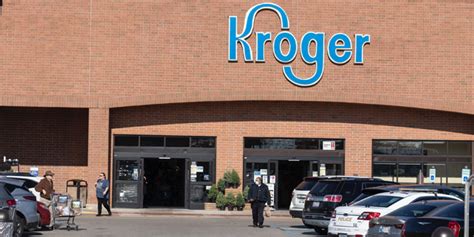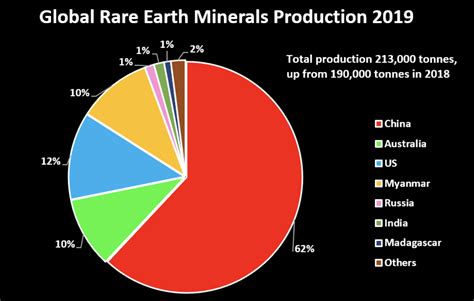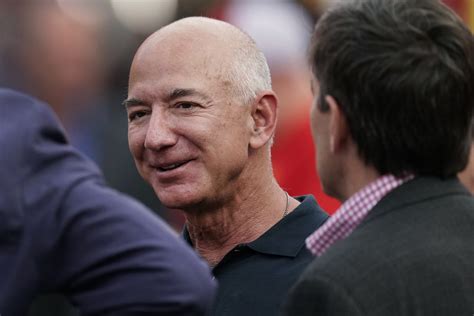
Kroger CEO Rodney McMullen is signaling a shift in consumer behavior amid mixed economic signals, noting unexpected changes in shopping patterns as customers navigate persistent inflation and economic uncertainty.
Kroger, the nation’s largest supermarket chain, is observing evolving consumer habits as shoppers grapple with a complex economic landscape, according to CEO Rodney McMullen. During the company’s recent earnings call, McMullen highlighted notable shifts in purchasing behavior, reflecting a consumer base increasingly sensitive to price fluctuations and economic ambiguities. These observations come at a time when economic indicators present a mixed picture, leaving retailers and consumers alike trying to decipher the trajectory of the economy.
“We are definitely seeing a change in customer behavior,” McMullen stated, emphasizing the unexpected nature of some of these changes. While he did not elaborate on specific examples during the initial statement, subsequent remarks and the broader context of Kroger’s performance provide insights into these shifts.
One of the most significant trends is the increasing emphasis on value. As inflation continues to impact household budgets, consumers are becoming more discerning in their purchasing decisions. They are actively seeking ways to stretch their dollars further, leading to several discernible behaviors:
-
Increased Private Label Purchases: Shoppers are increasingly opting for private label or store-brand products as a cost-effective alternative to national brands. These products, often priced lower than their branded counterparts, offer a way for consumers to maintain their purchasing power without sacrificing the quantity of goods they buy. “Our Our Brands continue to be a bigger and bigger part of our total business,” McMullen noted, confirming the growing popularity of Kroger’s private label offerings.
-
Strategic Shopping: Consumers are becoming more strategic in their shopping habits, carefully planning their purchases and taking advantage of promotions and discounts. This includes actively using coupons, comparing prices across different stores, and focusing on items that are on sale. McMullen pointed out that customers are consolidating trips and “looking for value wherever they can find it.”
-
Shift in Product Preferences: There is also evidence of a shift in product preferences, with consumers opting for less expensive cuts of meat or choosing to purchase more affordable alternatives to certain food items. This behavior reflects a willingness to adjust dietary habits in response to economic pressures. “People are definitely trading down and they are very, very focused on making every dollar count,” McMullen explained.
The mixed economic signals further complicate the situation. While some indicators suggest a resilient economy, others point to potential challenges ahead. The labor market, for example, remains relatively strong, with unemployment rates hovering near historic lows. However, inflation remains a persistent concern, eroding purchasing power and putting pressure on household budgets.
Moreover, rising interest rates, implemented by the Federal Reserve to combat inflation, are beginning to impact borrowing costs for consumers and businesses alike. This could potentially lead to a slowdown in economic activity as businesses scale back investments and consumers reduce spending.
McMullen acknowledged the uncertainty surrounding the economic outlook, stating that “it’s hard to predict exactly what’s going to happen.” He emphasized that Kroger is closely monitoring economic trends and consumer behavior to adapt its strategies accordingly.
Kroger’s response to these shifting dynamics involves several key initiatives:
-
Price Investments: Kroger is making strategic investments in pricing to remain competitive and provide value to its customers. This includes lowering prices on certain key items and offering promotions and discounts to attract price-sensitive shoppers.
-
Enhanced Private Label Offerings: The company is also focused on expanding and enhancing its private label offerings, providing consumers with a wider range of affordable alternatives to national brands. This includes investing in the quality and innovation of its private label products to ensure they meet the evolving needs and preferences of its customers.
-
Personalized Promotions: Kroger is leveraging its data analytics capabilities to deliver personalized promotions and offers to its customers, tailoring deals to individual shopping habits and preferences. This helps to ensure that customers are receiving the best possible value on the items they purchase most frequently.
-
Supply Chain Optimization: The company is also focused on optimizing its supply chain to reduce costs and improve efficiency. This includes streamlining logistics, negotiating favorable terms with suppliers, and investing in technology to enhance inventory management.
-
Focusing on Fresh: Kroger is emphasizing fresh produce and high-quality perishables, differentiating themselves with superior offerings. This initiative is designed to attract and retain customers even in the face of economic uncertainty. “People still want to eat well, and we’re making sure we can offer that value,” McMullen noted.
Beyond immediate strategies, Kroger is also looking at long-term trends influencing consumer behavior. Digital engagement is increasingly important, with more customers using online channels for shopping and information. Kroger is investing in its e-commerce platform to provide a seamless omnichannel experience. Sustainability is also a growing concern, with consumers showing increased interest in environmentally friendly products and practices. Kroger is responding by expanding its offerings of sustainable products and reducing its environmental footprint.
The insights from Kroger’s CEO underscore the complexities of navigating the current economic environment. Retailers and consumers alike are facing a landscape characterized by uncertainty, volatility, and evolving preferences. As economic signals remain mixed, the ability to adapt and respond to changing consumer behavior will be critical for success.
Kroger’s strategy of focusing on value, enhancing private label offerings, leveraging data analytics, and optimizing its supply chain positions the company to effectively navigate these challenges. However, the ultimate outcome will depend on a variety of factors, including the trajectory of inflation, the resilience of the labor market, and the overall health of the economy.
The company’s performance in the coming quarters will provide valuable insights into the evolving dynamics of the retail landscape and the ability of businesses to thrive in an uncertain economic environment. Kroger’s ability to anticipate and respond to shifting consumer preferences will be a key determinant of its success. McMullen’s comments serve as a reminder that adaptability and a deep understanding of consumer behavior are essential for navigating the complexities of the modern retail landscape.
The situation is further compounded by regional variations. Economic conditions and consumer behavior can differ significantly across different parts of the country. Kroger is tailoring its strategies to account for these regional differences, recognizing that a one-size-fits-all approach is not effective in the current environment.
For example, areas with higher concentrations of affluent consumers may be less sensitive to price fluctuations, while areas with lower incomes may be more focused on value. Kroger is adjusting its product offerings and pricing strategies to cater to the specific needs and preferences of consumers in each region.
The competitive landscape is also a key factor influencing Kroger’s strategy. The retail industry is highly competitive, with numerous players vying for market share. Kroger faces competition from traditional supermarkets, discount retailers, online retailers, and a variety of other sources.
To maintain its competitive edge, Kroger is focused on differentiating itself through superior customer service, high-quality products, and a compelling shopping experience. The company is also investing in technology and innovation to enhance its capabilities and stay ahead of the competition.
Kroger’s commitment to its employees is another important aspect of its strategy. The company recognizes that its employees are its most valuable asset and is focused on providing them with opportunities for growth and development. Kroger is also committed to creating a positive and inclusive work environment where employees feel valued and respected.
This commitment extends to the communities where Kroger operates. The company is actively involved in supporting local communities through charitable giving, volunteerism, and other initiatives. Kroger recognizes that its success is intertwined with the well-being of the communities it serves.
Looking ahead, Kroger is focused on building a sustainable business for the long term. This includes investing in sustainable practices, reducing its environmental footprint, and promoting responsible sourcing. Kroger recognizes that sustainability is not only the right thing to do but also makes good business sense.
The company is also committed to transparency and accountability. Kroger regularly reports on its progress in achieving its sustainability goals and is committed to engaging with stakeholders to address their concerns.
In conclusion, Kroger’s observations regarding shifting consumer behavior and mixed economic signals highlight the challenges and opportunities facing the retail industry. The company’s strategy of focusing on value, enhancing private label offerings, leveraging data analytics, optimizing its supply chain, and investing in its employees and communities positions it to effectively navigate these challenges and build a sustainable business for the long term. However, the ultimate outcome will depend on a variety of factors, including the trajectory of inflation, the resilience of the labor market, and the overall health of the economy. Kroger’s ability to anticipate and respond to shifting consumer preferences will be a key determinant of its success. The insights from Kroger’s CEO serve as a reminder that adaptability and a deep understanding of consumer behavior are essential for navigating the complexities of the modern retail landscape.
The mixed economic signals are not unique to the United States. Global economic conditions are also contributing to the uncertainty facing retailers. Factors such as geopolitical tensions, supply chain disruptions, and currency fluctuations can all impact consumer behavior and business performance.
Kroger is closely monitoring global economic trends and is prepared to adapt its strategies as needed. The company has a global sourcing network and is able to diversify its supply chain to mitigate the impact of disruptions. Kroger is also managing its currency exposure to minimize the impact of fluctuations.
The ability to navigate these global challenges is essential for Kroger’s long-term success. The company is committed to building a resilient and adaptable business that can thrive in a variety of economic environments.
Another important trend influencing consumer behavior is the increasing adoption of technology. Consumers are using technology in a variety of ways to enhance their shopping experience, from researching products online to using mobile apps to find deals and discounts.
Kroger is investing in technology to meet the evolving needs of its customers. The company is developing new mobile apps and online platforms that provide customers with a seamless and personalized shopping experience. Kroger is also using technology to improve its supply chain and optimize its operations.
The company is also exploring new technologies such as artificial intelligence and machine learning to enhance its capabilities and improve its decision-making. Kroger is committed to being a leader in the use of technology in the retail industry.
The regulatory environment is also a factor influencing Kroger’s strategy. The retail industry is subject to a variety of regulations, including those related to food safety, labor standards, and environmental protection.
Kroger is committed to complying with all applicable regulations and is actively engaged in the policy-making process. The company is working with policymakers to develop regulations that are fair, effective, and promote a level playing field for all businesses.
Kroger’s commitment to regulatory compliance is an important aspect of its overall strategy. The company recognizes that operating in a responsible and ethical manner is essential for building trust with its customers and stakeholders.
The competitive environment in the retail industry is constantly evolving. New players are entering the market, and existing players are adapting their strategies to stay ahead of the competition.
Kroger is focused on maintaining its competitive edge by providing its customers with the best possible value, service, and shopping experience. The company is also investing in innovation and technology to differentiate itself from its competitors.
Kroger’s commitment to its customers, employees, and communities is a key differentiator. The company is focused on building long-term relationships with its stakeholders and creating a positive impact on the world.
The economic outlook for the retail industry remains uncertain. However, Kroger is well-positioned to navigate the challenges and opportunities ahead. The company has a strong financial position, a proven track record of success, and a commitment to its customers, employees, and communities.
Kroger’s strategy of focusing on value, enhancing private label offerings, leveraging data analytics, optimizing its supply chain, and investing in its employees and communities positions it to effectively navigate these challenges and build a sustainable business for the long term. However, the ultimate outcome will depend on a variety of factors, including the trajectory of inflation, the resilience of the labor market, and the overall health of the economy. Kroger’s ability to anticipate and respond to shifting consumer preferences will be a key determinant of its success. The insights from Kroger’s CEO serve as a reminder that adaptability and a deep understanding of consumer behavior are essential for navigating the complexities of the modern retail landscape.
Frequently Asked Questions (FAQ)
1. What are the key shifts in consumer behavior that Kroger is observing?
Kroger is seeing an increased emphasis on value, with shoppers opting for private label brands, strategically planning purchases, and shifting product preferences towards more affordable options. Consumers are actively seeking discounts and promotions to stretch their budgets further amidst persistent inflation.
2. How is Kroger responding to these changes in consumer behavior?
Kroger is responding by making strategic price investments, enhancing its private label offerings, delivering personalized promotions, optimizing its supply chain for efficiency, and focusing on fresh, high-quality perishables to attract and retain customers.
3. What are the mixed economic signals that are contributing to consumer uncertainty?
The mixed signals include a relatively strong labor market with low unemployment, but persistent inflation that erodes purchasing power. Rising interest rates, implemented to combat inflation, are also impacting borrowing costs for both consumers and businesses, potentially leading to an economic slowdown.
4. How is Kroger leveraging data analytics to better serve its customers during this time?
Kroger is using data analytics to deliver personalized promotions and offers tailored to individual shopping habits and preferences. This allows customers to receive the best possible value on the items they purchase most frequently, enhancing customer satisfaction and loyalty.
5. What is Kroger’s long-term strategy for building a sustainable business in the face of economic uncertainty?
Kroger’s long-term strategy includes investing in sustainable practices, reducing its environmental footprint, promoting responsible sourcing, and maintaining transparency and accountability in its operations. Additionally, Kroger is focusing on technological advancements to enhance its supply chain and customer shopping experiences.









